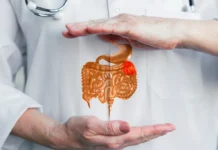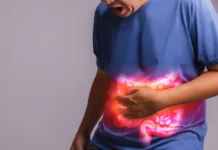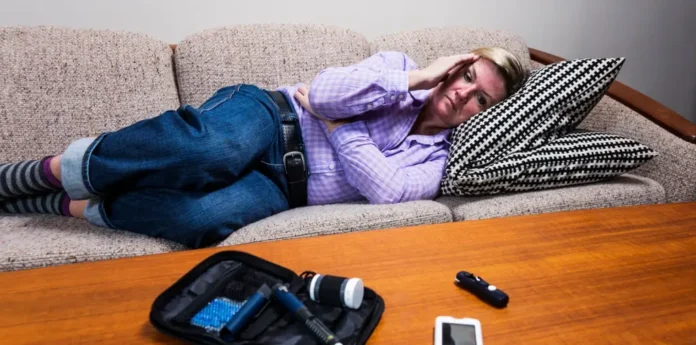Hypoglycemia, or low blood sugar, is a condition in which the level of glucose in the blood falls below normal. It is most commonly associated with diabetes treatment but can also be caused by certain medications and medical conditions in people without diabetes. Managing hypoglycemia is essential because low blood sugar can lead to serious health complications.
Recognizing Symptoms:
Hypoglycemia can manifest in a variety of ways. Common symptoms include:
- Irregular or fast heartbeat
- Pale skin
- Shakiness
- Fatigue
- Anxiety
- Hunger
- Irritability
- Sweating
- Tingling or numbness of the lips, tongue, or cheek
In severe cases, hypoglycemia can lead to:
- Visual disturbances, such as blurred vision
- Seizures
- Loss of consciousness
- Confusion
- Abnormal behavior
Seeking medical attention:
If you experience hypoglycemia symptoms and do not have diabetes, or if you have diabetes and standard treatments, such as drinking juice, consuming candy, or taking glucose tablets, do not alleviate your symptoms, it is important to consult a healthcare professional. Severe cases of hypoglycemia or loss of consciousness require immediate medical attention.
Causes of hypoglycemia:
Hypoglycemia takes place when blood sugar ranges fall below the everyday range. The primary motive for this circumstance is associated with medications used to treat diabetes, especially when too much insulin is used.
In human beings without diabetes, causes of hypoglycemia can include:
- Accidental intake of someone else’s oral diabetes medicine
- Excessive alcohol consumption without consuming
- Certain clinical conditions, along with kidney or liver diseases, consumption problems, or hormone deficiencies
- Rarely, a pancreatic tumour known as an insulinoma can cause excessive insulin production and hypoglycemia.
Hypoglycemia After Meals:
While hypoglycemia normally happens when you have not eaten for a while, it can additionally manifest after eating high-sugar meals. This is referred to as reactive hypoglycemia or postprandial hypoglycemia and is frequently seen in humans who have gone through belly-pass surgical treatment.
Associated Complications:
Untreated hypoglycemia can result in serious health complications, including:
- Seizures
- Loss of consciousness
- Death
- Accidents
- Falls
- Dizziness
- Weakness
- Increased risk of dementia in older adults
Hypoglycemia Unawareness:
Repeated episodes of hypoglycemia over time may lead to a condition called hypoglycemia unawareness, where the body and brain no longer produce warning signs of low blood sugar. This can be life-threatening and may require changes in diabetes treatment and blood glucose awareness training.
Undertreated Diabetes:
Fear of hypoglycemia can lead to insufficient insulin use and poorly managed diabetes. It is critical to discuss your worries with a healthcare provider and adjust your remedy as per their guidance.
Preventive Measures:
For human beings with diabetes, working with a healthcare company to increase their diabetes management plan is crucial. Any adjustments in medicinal drugs, ingesting schedules, or workout workouts have to be mentioned along with your medical doctor to reduce the threat of low blood sugar.
Other preventive measures consist of:
- Carrying fast-performing carbohydrates, which include juice or glucose pills, to deal with hypoglycemia before it becomes excessive
- Using a continuous glucose monitor (CGM) to monitor blood sugar levels in real time is particularly crucial when you have hypoglycemia.
- Consult a medical doctor to pick out and cope with the underlying purpose of hypoglycemia if you enjoy routine episodes and do not have diabetes.
Hypoglycemia: A Comprehensive Overview
What are the usual treatments for hypoglycemia in humans with diabetes?
The well-known remedy for hypoglycemia in human beings with diabetes is to eat a quick-acting supply of carbohydrates, consisting of glucose pills, juice, or candy. If the man or woman is not able to take meals or drink orally, they will want to be dealt with with glucagon, a hormone that increases blood sugar levels.
What scientific situations can cause hypoglycemia in human beings without diabetes other than kidney or liver diseases, consumption troubles, or hormone deficiencies?
Other medical conditions that could cause hypoglycemia in human beings without diabetes consist of:
- Reactive hypoglycemia: This occurs when the body releases too much insulin after a meal, causing blood sugar levels to drop.
- Dumping syndrome: This happens in humans who’ve had surgical operations to get rid of part of their belly. It causes meals to be transported too fast from the stomach to the small intestine, which can lead to low blood sugar levels.
- Insulinoma: This is an unprecedented tumour of the pancreas that produces an excessive amount of insulin.
- Certain medicinal drugs: Some medicinal drugs, including salicylates (e.g., aspirin) and beta-blockers, can also motivate hypoglycemia.
What are the preventive measures for hypoglycemia in human beings without diabetes?
The following preventive measures can assist in reducing the hazard of hypoglycemia in humans without diabetes:
- Eat everyday meals and snacks. This allows you to keep your blood sugar levels stable.
- Avoid skipping meals. Skipping meals can result in low blood sugar levels.
- Choose complicated carbohydrates: Complex carbohydrates, which include entire grains and fruits, are digested more slowly than easy carbohydrates, along with white bread and candy. This helps to prevent your blood sugar levels from spiking and then crashing.
- Moderate your intake of sugary foods and drinks. Sugary foods and drinks can cause blood sugar levels to rise quickly and then fall sharply.
- Be privy to the medications you are taking: Some medicinal drugs can cause hypoglycemia as an adverse effect. Talk to your medical doctor about the risks and advantages of any medicinal drugs you’re taking.
Examples of scientific situations and medications that can cause hypoglycemia include:
Medical situations:
- Reactive hypoglycemia
- Dumping syndrome
- Insulinoma
- Adrenal insufficiency
- Pituitary gland issues
- Liver ailment
- Kidney ailment
- Sepsis
- Severe malnutrition
Medications:
- Insulin
- Sulfonylureas
- Meglitinides
- Thiazolidinediones
- Glucagon-like peptide-1 (GLP-1) receptor agonists
- Beta-blockers
- Salicylates (e.g., aspirin)
- Quinine
- Pentamidine
- Octreotide
- Alcohol
How to prevent hypoglycemia
In addition to the preventive measures indexed above, there are a few other things you can do to help prevent hypoglycemia:
- Monitor your blood sugar levels frequently. This will assist you in identifying any changes in your blood sugar levels and taking steps to prevent hypoglycemia from happening.
- Always carry a fast-appearing supply of carbohydrates with you. This will help you treat hypoglycemia quickly if it occurs.
- Educate others about hypoglycemia: Let your friends, circle of relatives, and coworkers realize the signs and symptoms of hypoglycemia and what to do in case you enjoy an episode.
If you have any concerns about hypoglycemia, communicate with your health practitioner. They let you create a plan to manage your circumstances and prevent complications.
Conclusion:
Managing hypoglycemia, whether you’ve got diabetes or not, is essential for maintaining fitness and preventing extreme complications. Always try to find clinical guidance and follow a healthcare issuer’s suggestions for your precise state of affairs.














